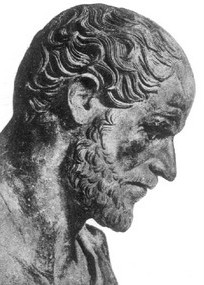| 'Unique' Roman throne found at Villa dei Papiri |
 (ANSA) - Naples, December 5, 2007 - The ancient Roman city of Herculaneum near Naples has yielded its most precious prize in years - a richly carved wood-and-ivory throne. (ANSA) - Naples, December 5, 2007 - The ancient Roman city of Herculaneum near Naples has yielded its most precious prize in years - a richly carved wood-and-ivory throne.The discovery in the city's famed Villa dei Papiri ''is the first original throne from the Roman era that has been preserved for us,'' said Pompeii Superintendent Pietro Giovanni Guzzi. ''Until now we have only seen examples of this kind of throne in pictures, like the one in a Renaissance villa in Rome in which Aphrodite is shown sitting on one,'' he said. ''It is an absolutely exceptional find''. Guzzo said the throne's inlaid marble reliefs depicting figures celebrating the ancient Greek cult of Attis were also ''unique'' in themselves. Herculaneum, the lesser-known of the two cities buried by Vesuvius in 79 AD, has an advantage over its more famous neighbour in that the hot mud that encased it allowed fragile organic matter like wood and fabrics to survive. The partially excavated Villa dei Papiri is at the centre of a row between those who want to accelerate a hunt for lost classics and conservation experts who believe haste could in fact ruin the site. Best-selling British thriller writer Robert Harris is among those who think speed is of the essence if many unique papyri are not to be lost. The 'Fatherland' author, whose last novel 'Pompeii' weaves the wonders of Roman aqueducts into a pre-eruption whodunnit, thinks great works lost to posterity could be under the villa. The 250m-long building, the largest and most sumptuous villa found outside Rome, contains a huge swimming pool and thermal baths. It is thought to have belonged to Lucius Calpurnius Piso, father of Calpurnia, Julius Caesar's wife. The villa, found in the 18th century, half-buried again, and partially re-excavated in 1985, has already yielded some 1,800 papyri, half of which have been deciphered. Most of them are the work of 1st century BC Epicurean philosopher Philodemus, said by some to have taught the great Latin poet Virgil. Harris and others think there are many more papyri under the villa, the stuff of treasure hunters' dreams: the original version of Virgil's masterpiece the Aeneid, perhaps, most of Sophocles, Euripides and Aeschylus - and maybe even Aristotle's book on comedy that was the crux of Umberto Eco's cowled skullduggery classic The Name of the Rose. Along with the Oxford-based Herculaneum Society, Harris is pressing for fresh digs at the site in the hope of finding such buried riches. But Andrew Wallace-Hadrill of the British School at Rome, a professor backed by the Pompeii archaeological superintendency and the Packard Humanities Institute, disagrees. ''It's great to compile a wish list of lost masterpieces and hope they're down there. The thing is, what if they aren't?'' he said recently. ''The chances are you dive in and find something pretty dull - more relatively obscure Epicurean philosophers, for instance.'' Wallace-Hadrill said the immediate challenge is to save the site and give its grungy modern surroundings a major makeover. Herculaneum is in a ''critical'' state, he said. ''We must at least ensure it survives for the next few years before considering further digs''. |
Thursday, December 6, 2007
Herculaneum Yields Rare Prize
Subscribe to:
Post Comments (Atom)

No comments:
Post a Comment